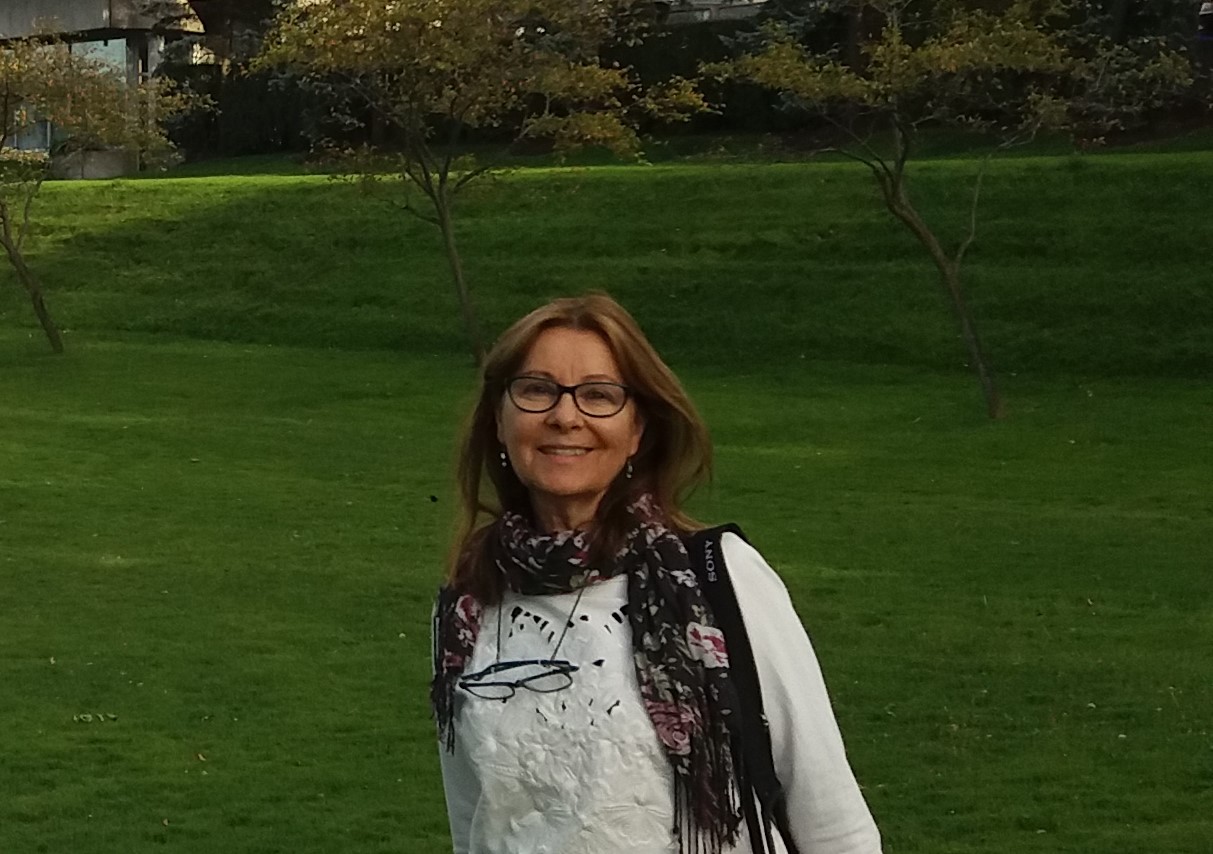
Margie Rauen
Professor, Graduate Program of Education of the Midwestern State University (UNICENTRO) in Paraná, Brazil
Associate Fellow, Visiting Researcher
Research Cluster: Arts, Literatures, and Languages
About Margie Rauen
Dr. Margarida Gandara Rauen, who goes by the art name Margie Rauen (she/her), is an independent visiting scholar, having retired as a professor of Universidade Estadual do Centro-Oeste (UNICENTRO) in Paraná, Brazil, where she served in the Department of Arts and the Graduate Program of Education. Margie was first hosted at CERLAC by Dr. Honor Ford-Smith as a visiting scholar and became an Associate Fellow of the cluster of Arts, Literatures and Languages in 2022. Since then, Margie has pursued research about feminist activism, intercultural performances, identities, and herstories in the LAWG Special Collection of CERLAC’s Resource Centre.
Her works encompass gender, ethnic-racial categories, participatory poetics, and intercultural approaches to creative processes and to curriculum redefinition from the stance of intersectional feminism, fostering peace, equity, respect. As a professor at UNICENTRO, she taught required courses covering theoretical paradigms, post-structuralist and feminist theory, research methodology, in addition to elective special topics, namely: creative processes in theatre and performance art; the intersectional lens for fostering equity in the curriculum and thinking beyond white feminism, on the inclusion of relevant authors who have remained invisible due to androcentrism and eurocentrism in education.
She earned a Master of Arts and a Ph.D. in English/Theater (MSU, USA, 1987), having developed post-doctoral projects as a Folger Institute Fellow (USA, 1993, 1997, 2003). She was a Global Shakespeare Fellow at the University of Warwick, UK, in 2017. As a director and playwright in Brazil, her main earlier works were Ofélias/A-void-ing, Juliets, and Shadows of Sycorax. These makeovers of Shakespearean characters discuss experiences of marginalized women and performed in an art gallery, in thirteen different community venues, and in a prison (a forum theater immersion with teenager inmates), respectively. Such site-specific works, forum theater/theater of the oppressed, and outreach workshop projects in community venues since the 1990s earned grants from the Curitiba Cultural Foundation. They also were sponsored by UNICENTRO in the cities of Irati and Guarapuava. Her work-in-process Performing_names evolved during residencies at Artscape Gibraltar Point, Toronto Island, Canada in 2018 and 2019 (there is an entry in the Emergency Index – Vol. 8, Ugly Duckling Presse, New York/USA, 2019, p. 298–299). Since then, she has expanded Performing_names as a video project that addresses intersectional issues, yet to earn funding. Margie’s current work titled “Brazil Commodities 1: coffee” was performed during the I Arts and Literature Festival of CERLAC (October 24, 2024).
Her publications in Brazil, the United States, United Kingdom, France, and Germany feature scholarship from a post-colonial stance, including the political use of William Shakespeare as a canonical author in Brazil in articles per Oxford, Cahiers Élisabéthains, and Delaware/Fairleigh Dickinson Presses. She served as reviewer and guest-editor of prestigious Brazilian academic journals (Ilha do Desterro – UFSC-Federal Univ. of Santa Catarina; Revista Científica da FAP – UNESPAR (one of the founders); Urdimento; Education, Arts, and Inclusion – UDESC- State University of Santa Catarina). She recently published, with her co-editor Andréia Schach Fey, an eBook on notable Brazilian women titled Women in the Arts, Letters, Sciences and Dailies in Paraná (São Paulo: Pimenta Cultural, 2024), available for free download at https://ocul-yor.primo.exlibrisgroup.com/permalink/01OCUL_YOR/1jocqcq/alma991036925252705164
Margie Rauen’s website: https://margierauen.com/index.html
For a CV online, access https://orcid.org/my-orcid?orcid=0000-0002-2466-339X
A video that features a creative process developed with Margie’s art students and was screened at the 2016 Annual Conference of the American Society for Theatre Research can be watched at https://www.youtube.com/watch?v=a1GyZj7CArI&t=35s
Country or Region of Specialization: Brazil
Keywords: Gender, ethnic-racial categories, intersectional feminism, activisms

Paulo Ravecca
Assistant Professor, Department of Political Science, Universidad de la República, Uruguay.
Associate Fellow
About Paulo Ravecca
Paulo Ravecca researches epistemology and the history of political science; critical theories (queer, neo-marxist, postcolonial, and poststructural approaches); international relations and qualitative methods; and gender and sexuality. He is the author of The Politics of Political Science: Re-Writing Latin American Experiences (2019) and serves as an associate editor of the Journal of Narrative Politics and Crítica Contemporánea. Revista de Teoría Política. Paulo holds a PhD in Political Science from York University.
Country(ies) or Region(s) of Specialization: Latin America, Southern Cone, Chile, Uruguay
Keywords: political science, critical theory, epistemology, qualitative methods, gender and sexuality
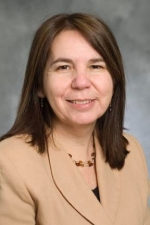
Cecilia Rocha
Professor, School of Nutrition, Ryerson University
Associate Fellow
About Cecilia Rocha
Cecilia Rocha (PhD) is the director and a professor in the School of Nutrition, and associate researcher and past director of the Centre for Studies in Food Security at Ryerson. Her research interests include:
Assessing the social efficiency of food security initiatives and programs.
The role of market failures in food insecurity.
The effectiveness of markets as policy tools.
From 2004 to 2010, Rocha was director of the project Building Capacity in Food Security in Brazil, developed in partnership with the Reference Centre for Food and Nutrition Security in Rio de Janeiro, and funded by the Canadian International Development Agency.
She has authored key papers on the innovative and pioneering policies and programs in food security in the city of Belo Horizonte, Brazil, and has been an invited speaker at many international meetings, such as the 2009 United Nations High Level Meeting on Food Security for All in Madrid, Spain, and the 2009 Parliamentary Meeting on the Occasion of the World Food Summit in Rome, Italy.
Rocha was an active member of the Toronto Food Policy Council from 2006 to 2011, and participated in the development of the Toronto Food Strategy (2009-2010). She has conducted research on food security conditions among immigrant populations in Toronto, and the manifestation of food sovereignty in an indigenous settlement in Brazil.
In 2012, she was invited to be part of a distinguished expert panel on the State of Knowledge of Food Security in Northern Canada by the Council of Canadian Academies.
Country(ies) or Region(s) of Specialization: Brazil
Keyword(s): Food security/ insecurity, food programs, the role of markets as policy tools

Jim Rochlin
Professor, Political Science, University of British Columbia
Associate Fellow
About Jim Rochlin
Latin American politics and critical security studies; exploration of new conceptions of security in Latin America, including those related to insurgenices, race and class, as well as production of oil.
Country(ies) or Region(s) of Specialization: Latin America
Keywords: Security studies, insurgencies, race and class
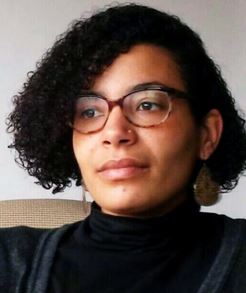
Celia Romolus
Assistant Professor, Institute of Feminist and Gender Studies, University of Ottawa
Associate Fellow
About Celia Romolus
Célia Romulus joined the department of International Studies as an Assistant Professor. Célia Romulus completed her PhD in the department of Political Studies at Queen’s University (Canada). Célia’s doctoral research focused on the normalization of gendered state repression under the Duvalier dictatorship; how these systematized forms of violence shaped movements of population out of Haiti; and the notion of citizenship as experienced by multiple generations of migrants. Her research and teaching draws from Anti-Oppression and Anti-Racist Education; Afro and Decolonial Feminisms and explores questions related to explores the Gender and Politics of Memory, Migrations, Citizenship, Political violence; Interdisciplinary Methods.
Prior to completing her PhD, Célia Romulus worked as a programme director in the areas of gender-based violence in public spaces and security sector reform for UN WOMEN and continues to work as a consultant and trainer on questions related to anti-oppression, anti-racism, Black femininities/masculinities, gender-mainstreaming in public policies and in development.
Country(ies) or Region(s) of Interest: Haiti
Keywords: Anti-Oppression and Anti-Racist Education; Afro and Decolonial Feminisms, Gender and Politics of Memory, Migrations, Citizenship, Political violence; Interdisciplinary Methods.
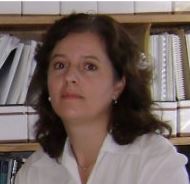
Joanna Anneke Rummens
Associate Professor, School of Nursing, Ryerson University
Associate Fellow
About Joanna Anneke Rummens
Joanna Anneke Rummens is a multilingual anthropologist/sociologist whose research explores the links between identity, diversity, health and wellbeing, with special focus on vulnerable and marginalized populations. She has undertaken fieldwork with a wide variety of cultural groups in different societal contexts and employs an explicitly interdisciplinary, mixed-methodological, comparative perspective. Her work reflects a strong commitment to policy- and practice-relevant research, collaborative research partnerships with representatives from diverse ethno-cultural communities, as well as effective research translation / transfer and knowledge exchange / mobilization with a wide range of key stakeholders. Dr. Rummens has served in an advisory capacity in the areas of identity, diversity, citizenship and health to various governmental departments and was a Member of the Advisory Committee to Statistics Canada and Canadian Heritage for Canada
Country(ies) or Region(s) of Specialization: Latin America
Keywords: Identity, diversity, health and wellbeing

Frans Schryer
Professor, Department of Sociology & Anthropology, University of Guelph
Associate Fellow
About Frans Schryer
Frans Schryer has published two books on the history and anthropology of the Huasteca region of Mexico, and two books dealing with postwar Dutch immigrants in Ontario. He is currently engaged in a long-terms research project in the state of Guerrero, Mexico.
His research interests are: Ethnohistory; Class and ethnicity in Mexico; Dutch farm immigrants; The impact of globalization on indigenous peoples of Mexico (particularly the Alto Balsas Nahuas); Transnationalism.
Country(ies) or Region(s) of Specialization: Mexico
Keywords: Ethnohistory; Class and ethnicity
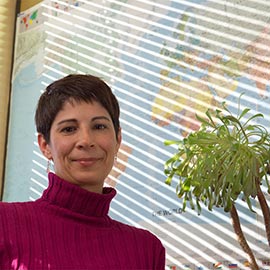
Yasmine Shamsie
Associate Professor, Political Science, Wilfrid Laurier University
Associate Fellow
About Yasmine Shamsie
I received my PhD in Political Science from York University and my MA from the University of Toronto. I also have a journalism degree from Carleton University.
Prior to joining Laurier, I worked as a journalist for the Canadian Broadcasting Corporation. Following that, during the early 1990s, I worked in Nicaragua as a researcher examining how structural adjustment policies affected women employed by the government, based in Managua.
My research is on the democracy-building and economic development programs of international actors (governments and international organizations) in Central America and the Caribbean. During the last 10 years, I focused primarily on how outsiders have affected economic and political developments in Haiti.
Country(ies) or Region(s) of Specialization: Central America, the Caribbean, Haiti
Keywords: Democracy building, economic development,
